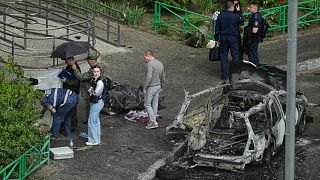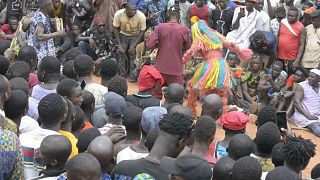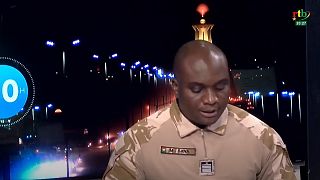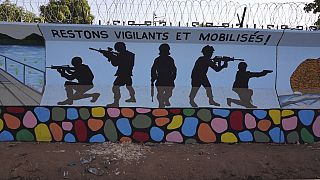Burkina Faso
Burkina Faso's former president Blaise Compaore, the main accused in a long-awaited trial on the 1987 assassination of his predecessor Thomas Sankara, will boycott the upcoming proceedings, his lawyers said on Thursday.
"President Blaise Compaore will not be attending the political trial that is being staged against him at the military court of Ouagadougou, nor will we," Burkinabe and French attorneys for Compaore said.
In the trial opening on Monday, Compaore and 13 others face an array of charges in the death of Sankara, a charismatic revolutionary whom followers describe as the African Che Guevara.
Sankara took power in the impoverished Sahel state in 1983, renaming the country the following year from Upper Volta to Burkina Faso, which means "land of the honest men."
He carried out a string of radical policies, including nationalisations, public housing and a ban on female genital mutilation, polygamy and forced marriages.
But he was shot dead on October 15, 1987, aged just 37, during a putsch led by Compaore, a former friend.
Compaore was himself ousted in 2014 by a popular uprising after 27 years in power and fled to Ivory Coast, where he has obtained Ivorian nationality.
Many in Burkina Faso hope the trial will shed light on one of the bloodiest chapters in the country's long history of volatility.
Compaore, 70, has always denied accusations that he ordered Sankara's killing.
After his fall from power, an investigation into the assassination was opened in 2015 under a transitional government and a warrant for his arrest was issued the following year.
Those accused include Compaore's former right-hand man -- General Gilbert Diendere, a former head of the elite Presidential Security Regiment (RSP).
The pair face charges of complicity in murder, harming state security and complicity in the concealment of corpses.
Diendere, 61, is already serving a 20-year sentence in Burkina for masterminding a plot in 2015 against the transitional government.
Compaore's lawyers, Pierre-Olivier Sur and Abdoul Ouedraogo, said the military tribunal was an "exceptional court" that lay outside common law.
They said their client had never received a summons to be questioned, nor had he received any formal accusation against him, except for the summons to attend the trial.
In addition, Compaore, has "immunity (from prosecution) as a former head of state," they added.











Go to video
Tunisia jails opponents, critics of President Saied
Go to video
Uganda plans law to allow military prosecution of civilians
Go to video
Meta boss Mark Zuckerberg takes the stand in antitrust trial
Go to video
Mauritius: Ex-finance minister released on bail after corruption charges
Go to video
U.S. charges Americans convicted of coup attempt in Congo
Go to video
Three American citizens who attempted coup in DRC back in US custody